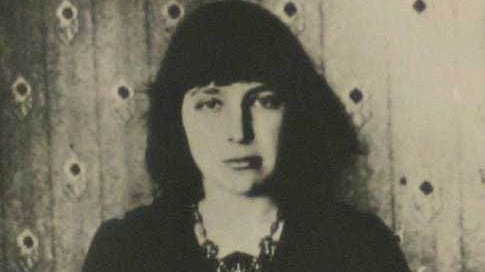Writing on history is a kind of emigration from the familiar home of the present to the foreign country that is the past. Sometimes the emigrant is welcomed in the past. Sometimes they are exiled from the present. Sometimes the exiled writer on the past is never heard again in the now. Sometimes their words echo loudly into the future.
There are historians who imagine that they are the judges who decide which voices return from the past to the present. They fool themselves that they hear the trumpets of historical significance. That they know the spirit of the times, the winds of the future, and the signs of what truly represents the contemporary.
But in 1932 the great Russian poet, essayist, and enigmatic writer on history, Marina Tsvetaeva declared the historians wrong.
Contemporary is not what shouts the loudest, but what keeps the quietest.
—Marina Tsvetaeva, The Poet and Time
It may be that the poet, or at least the poetic writer on history, has the gifts to hear those quiet voices.
I read Marina Tsvetaeva, The Poet and Time as part of my audio-mini series this week.
It wrestles with two questions. Both questions were framed in the context of the Russian Revolution, which transformed society in the belief that a science of history could determine that which was wheat. because it was revolutionary and new, and that which was chaff, because traditional and old. She wrote her essay as an émigré, and a representative of a class the Revolution or at least the Bolshevik apparatchiks defined as waste to be discarded, exiled, forgotten, and murdered.
The first question Tsvetaeva implied in her essay was: what makes a poet’s words last beyond their time and to speak to us in the future? Why do we celebrate Pushkin nearly two-hundred years after his death? But we have forgotten all those writers whose words did not make safe passage from the past to the present?
The second question Tsvetaeva implied was: can writing be a consolation for feeling that we do not belong in the here and now? The Russian Revolutionaries defined Tsvetaeva, and many of the greats of Russia’s Silver Age of literature, as not contemporary, as not in keeping with the spirit of the times, as belonging in the dustbin of history. If you do not belong in your own time, can you emigrate to another? Can history carry you to the past? Can visionary verse transport you to the future?
She and the cream of Russian intellectual life who fled the upheavals of 1917 to 1922 were émigrés. Most remained in Paris. Some became embittered. Some became American. A few became distinguished. Ivan Bunin even won the Nobel Prize in 1933, a year before Tsvetaeva published her essay. But Tsvetaeva became that rare character - an émigré who returned.
In this essay, she wrote that all poets are émigrés. I might add: all writers on history are exiles at home.
Paid subscribers can listen to my full reading of The Poet and Time, from the collection Marina Tsvetaeva, Art in the Light of Conscience: eight essays on poetry (2010), translated by Angela Livingstone.
Paid subscribers can also read the additional notes on Tsvetaeva’s essay that I have prepared to understand this great essay as not only on poetry, but also as writing on history.


